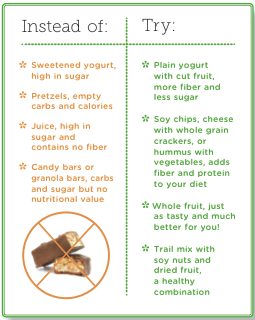
How to eat right and stay healthy for two.
When I first found out I was pregnant, my excitement was quickly followed by one thought: “No wonder!” A baby growing inside me certainly explained why I was hungry all the time. As a lifelong lacto-vegetarian—I eat milk products but not eggs—I knew about the produce and dairy sources of the nutrients that I needed. But was I still eating right now that I was pregnant?
I realized that I needed to learn more about my diet in order to eat well for both of us. With help from nutrition experts and a little perseverance, I quickly learned to eat more health- fully while maintaining my meat-free diet. And the truth is, all vegetarians—whether you’re already one or you’ve had an aversion to eating meat since you became pregnant— can safely skip meat during pregnancy.
“You can meet all your needs with a healthy vegetar- ian diet during pregnancy,” says Tara Gidus, R.D., an Orlando, FL, dietitian specializing in vegetarianism and a spokesperson for the American Dietetic Association (ADA). In fact, in its position paper on the subject, the ADA states that vegetarian diets are appropriate for all stages of life, including pregnancy and nursing.
What’s Important
How to get enough protein is often the first ques- tion that comes to mind, but this isn’t as much of a concern as most people think, Gidus says. Healthy portions of milk, cheese, soy products, beans, nuts, and seeds provide a pregnant vegetarian with all the protein she needs. To figure out your daily require- ment—which depends on your due date, age, height, and weight—you can create personalized dietary guidelines with the correct portion sizes for each trimester including vegetarian sources of protein, by visiting the United States Department of Agriculture’s website for its My Pyramid program at www.choosemyplate.gov/pregnancy-breastfeeding.html.
Another nutrient vegetarian diets can lack is zinc, according to Gidus, who consumes a diet that’s mostly vegetarian with some fish. Fortunately, zinc can be found in nuts, seeds, tofu, beans, and fortified soy meat-replacement products. Gidus also recom- mends eating sources of B12 including eggs, milk, and fortified soy products, as well as beans, forti- fied cereals, soy, and green vegetables. If you eat these foods, you should be getting plenty of calcium, another important nutrient.
Favorite Foods
“I always emphasize greens and beans as a way to get good nutrition and solve the constipation problem that is common in pregnancy,” suggests Miriam Abrin, N.P., a nurse and home-birth midwife in Honolulu, HI, who remained vegetarian during her five pregnancies. Both beans and leafy greens are sources of calcium, iron, and fiber—the last of which helps prevent that all-too-common pregnancy problem. Abrin also recommends yellow vegetables rich in vitamin A and carotene, and fruits high in vitamin C such as papa- yas, mangos, pineapples, tangerines, and oranges.
Just For You
A tailored meal plan that includes a variety of fruits, vegetables, grains, nuts, and beans will ensure your diet isn’t lacking, says Shoshana Werber, R.D., a dieti- tian in New York City. Vegans, in particular, can choose from fewer sources of protein and calcium than vegetarians, especially those who eat fish, so anyone on a vegan diet needs careful meal planning to get enough non-animal sources of these nutrients, Werber says.
Amy Hesse, a New York City mother of a 16-month- old, says of her vegetarian diet during pregnancy, “I was obsessed.” Once she became pregnant, she switched from a regular English muffin at breakfast to the whole-grain version with peanut butter—nut butters, such as peanut and almond, are a great way to add protein to the diet, Abrin says. Hesse snacked on fruit, cheese, nuts, and Oh Mama! pregnancy nutrition bars, which have calcium, B vitamins, and DHA, the healthful omega fatty acid most commonly found in fish that’s important for baby’s brain and eye development. She drank 64 ounces of water daily. “I felt great the whole time,” she says.
Hesse also swore by her prenatal vitamin, which she began taking daily two months before she conceived, at the recommendation of her primary care physician. Gidus, too, stresses the importance of daily prenatal vitamins to truly get all the needed elements in your diet. Gidus also recommends taking a DHA supplement. A few types of algae-based sup- plements are available for vegetarians and vegans; DEVA is one brand. Check with your care provider about the correct dosage for you.
Radha McLean is a writer in New York, author of The Green Pregnancy Diet, and a dedicated mom and vegetarian.



Leave a Reply